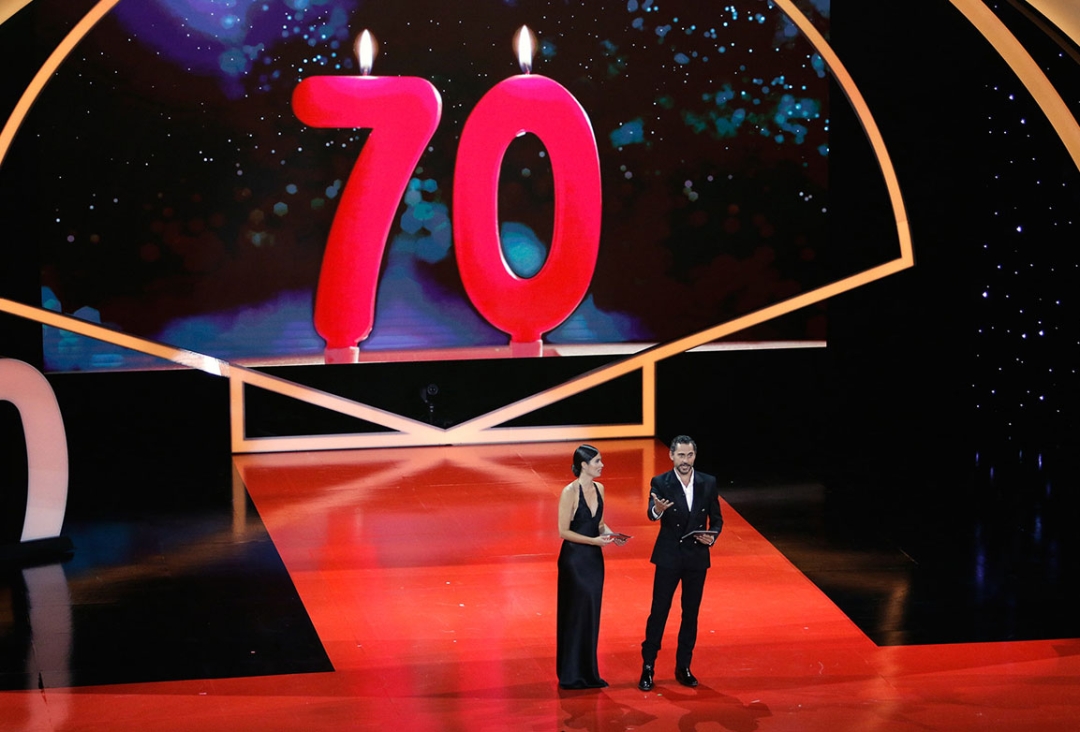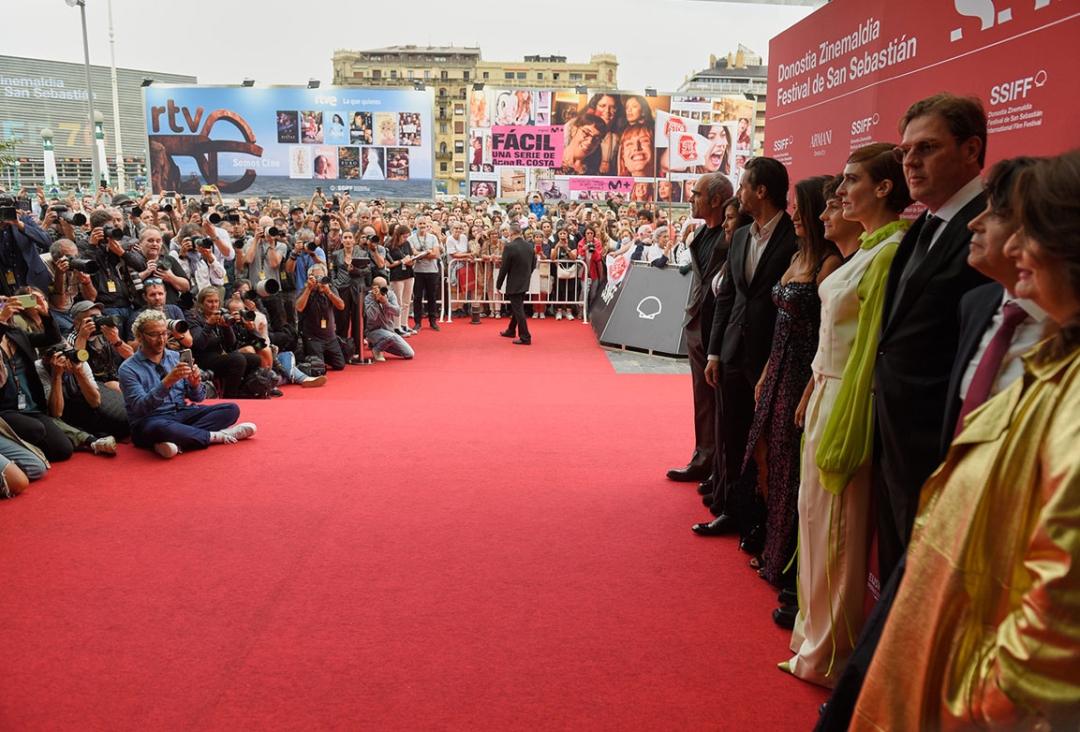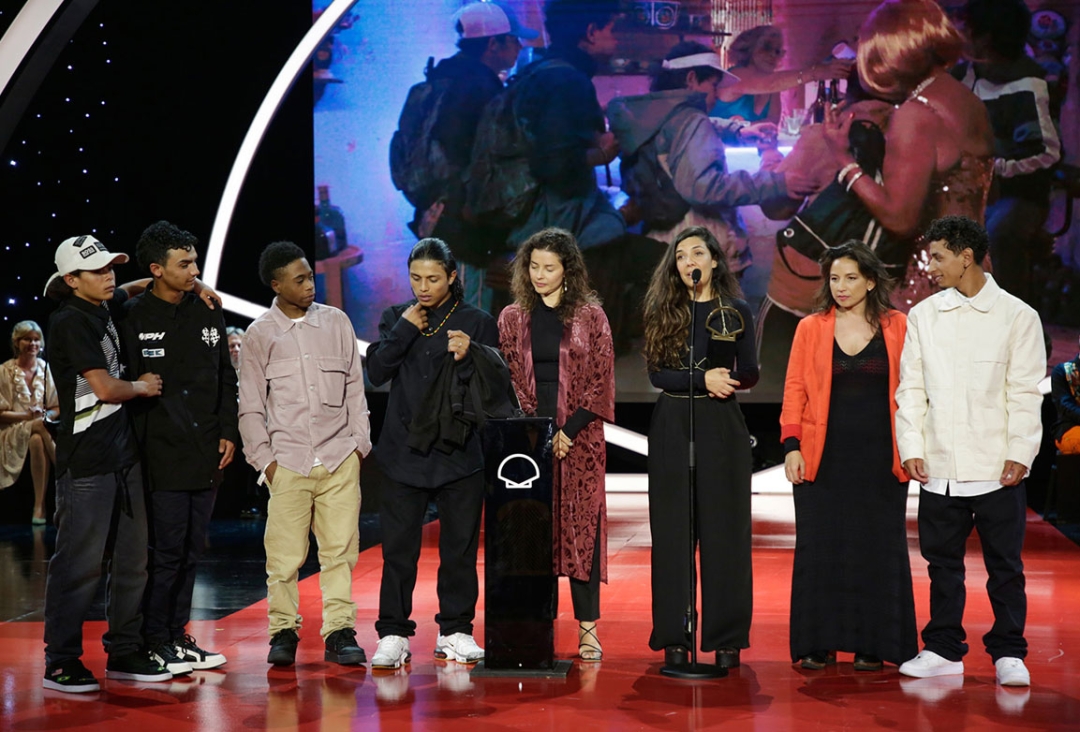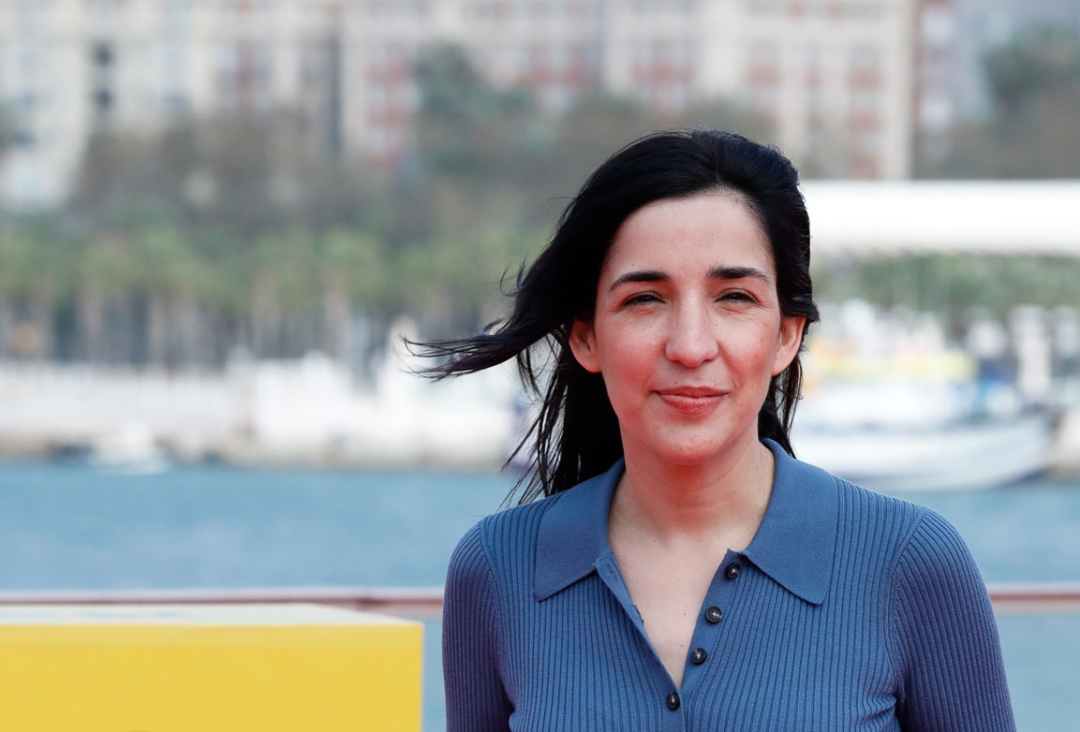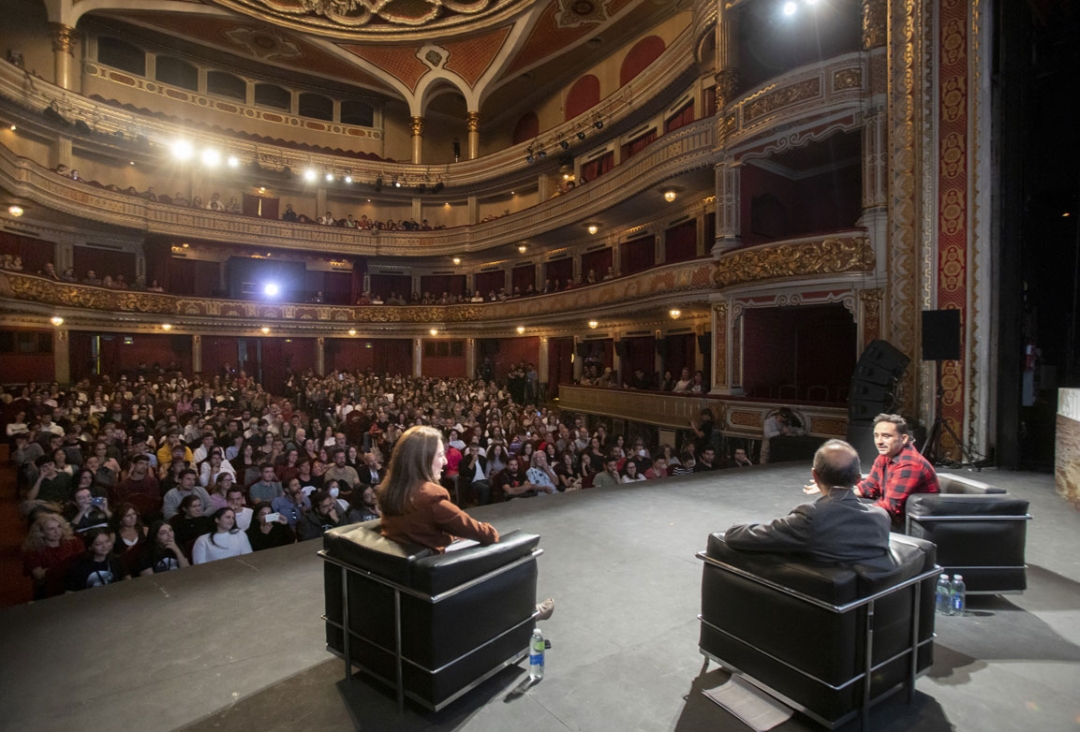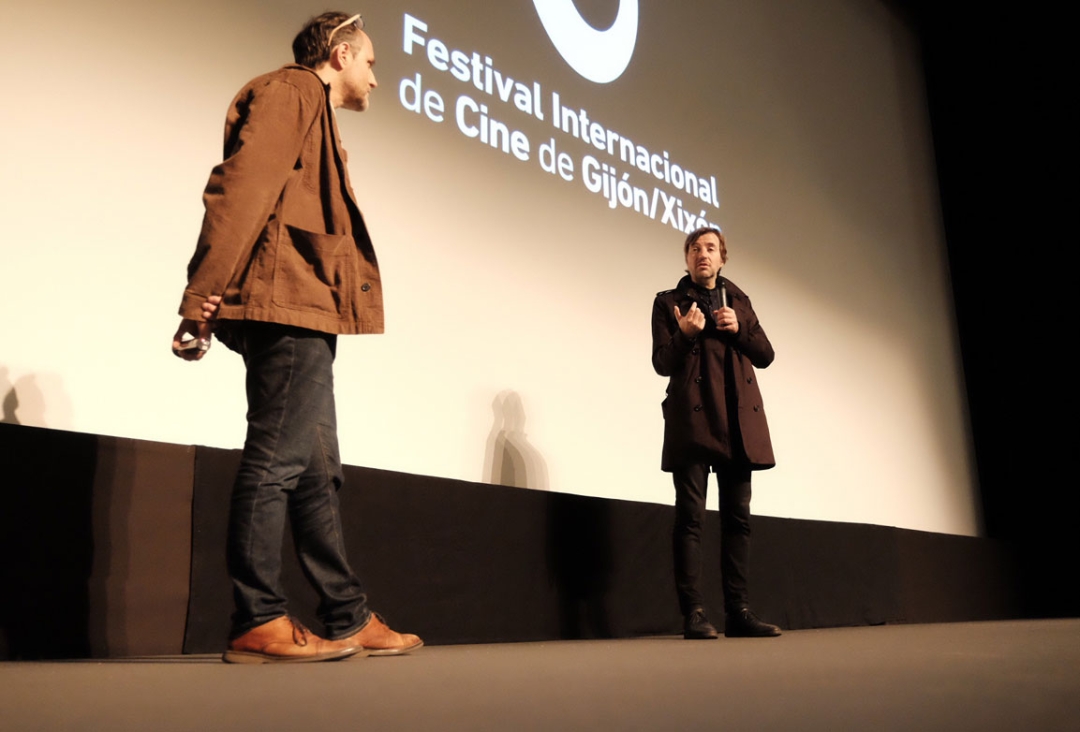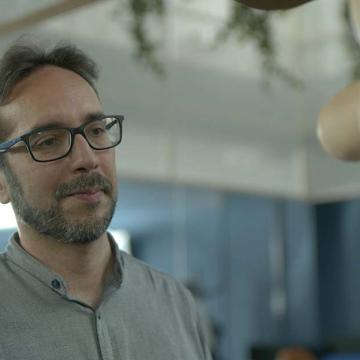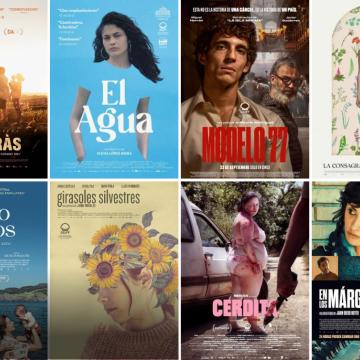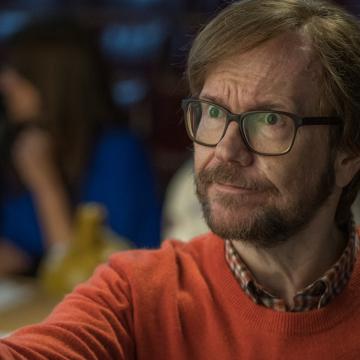Since opening on the 17th of April, Espacio Iberia has welcomed dozens of guests with one thing in common: their infinite talent. Talent that has inspired all the people who have sat there to listen to them.
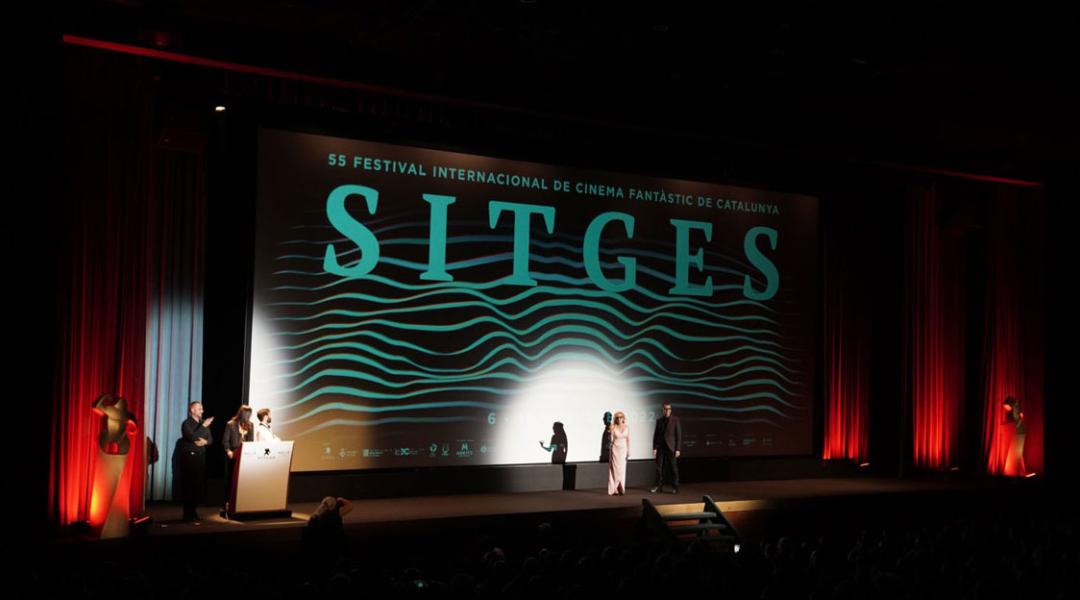
What do Valladolid, Sitges, San Sebastián, Seville, Málaga and Gijón have in common? The answer is cinema. All these cities host their own film festival, parading a selection of both national and international films and stars. One of them, the San Sebastián Film Festival, is even considered on par with the most important in the world: Cannes, Berlin and Venice. Places that bring light to and awaken talent.
“We want to be a discussion space for different ways of understanding film and life.” During the opening of its latest edition, José Luis Rebordinos, director of the San Sebastián Film Festival, asserted how in vogue this event is, which celebrated its 70th anniversary in 2022 with a record number of renowned professionals. Zinemaldia is considered an A-class festival —a distinction that recognises the best in the business and that only 15 in the world possess—, putting it on par with the likes of Venice, Berlin and Cannes within the international film scene. It’s precisely for this reason that we’re going to go over the main film festivals held in Spain. Lights, camera, action!
San Sebastián Film Festival (Zinemaldia)
Since the beginning, its history is full of achievements. For example, this is where Alfred Hitchcock released key tapes of his filmography as Vertigo or North by Northwest at the end of the 1950s. Far from growing comfortable, one of the keys to it becoming such an iconic festival lies in it wisely adapting to the times, as Rebordinos’ words reveal: “San Sebastián is a festival that’s constantly on the move, that looks towards the future, and is willing to change as many times as necessary.” Beyond the official section, it includes others that enrich its global view of cinema.
“San Sebastián is a festival willing to change as many times as necessary” — José Luis Rebordinos
The titles that are included in the official section every September aspire to win the Golden Shell, which refers to the city’s most famous beach. It also hands out the Donostia Award in recognition of the most noteworthy cinematic careers. An award that’s been given to stars such as Bette Davis, Gregory Peck, Meryl Streep, Dustin Hoffman or Penélope Cruz. The latest to receive the unanimous applause from the audience at the Kursaal Congress Centre and Auditorium, the festival’s headquarters, were French actress Juliette Binoche and Canadian producer David Cronenberg.
Noteworthy winning films: America America (Elia Kazan, 1964), Claire’s Knee (Éric Rohmer, 1971), Badlands (Terrence Malick, 1974), Rumble Fish (Francis Ford Coppola, 1984), Mondays in the Sun (Fernando León de Aranoa, 2002).
Valladolid Film Festival (Seminci)
One of the longest-standing film festivals in Spain. It was founded in 1956 as a showcase of nationally produced religious films, but it soon opened up to the international scene. In fact, the Golden Spike, its main award, was initially granted in recognition of the human values portrayed by films. A moment that went down in history occurred on the 24th of April 1975 —it’s currently held in October—, when it was no longer limited to religious films. That day, A Clockwork Orange (Stanley Kubrick, 1971) was released in Spain, specifically at Carrión Cinema, a film that had been censured for four years by the Francoist regime. The screening wasn’t without its troubles, including a false bomb warning but, that day, the Valladolid Film Festival stepped into the modern day.
Noteworthy winning films: The Seventh Seal (Ingmar Bergman, 1960), Harold and Maude (Hal Ashby, 1974), Thelma and Louise (Ridley Scott, 1991), Requiem for a Dream (Darren Arronofsky, 2000), 3-Iron (Kim Ki-duk, 2003).
Fantastic Film Festival of Catalonia (Sitges)
An event that, over time, has turned into the epitome of its genre: fantasy and horror film, which is often the starting point for many new talents. In fact, names like Jaume Balagueró, Juan Antonio Bayona, Nacho Vigalondo, Guillermo del Toro or Álex de la Iglesia rose to fame there. “Fantasy offers me the greatest sense of creativity and when I come to Sitges, it feels like coming home,” De la Iglesia said during his last visit. With the silhouette of King Kong as its brand image, Sitges attracts thousands of believers every October; if there’s anything this festival can boast about, it’s its connection with fans.
“Fantasy offers me the greatest sense of creativity and when I come to Sitges, it feels like coming home” — De la Iglesia
Noteworthy winning films: Blue Velvet (David Lynch, 1986), Europa (Lars Von Trier, 1991), Gattaca (Andrew Niccol, 1997), Oldboy (Park Chan-wook, 2004), Holy Motors (Léos Carax, 2012).
Málaga Film Festival
Created in 1998 and consolidated as a crucial rendezvous for Spanish film, it’s the earliest in the year. Celebrated in March, it’s a great showcase for the season’s major releases. Many of the films that are screened and that compete for the Golden Biznaga —plant typical of the region—, end up joining the ranks of Goya nominations. For example, the latest winner in Málaga, Lullaby, the directional debut of Basque director Alauda Ruiz de Azúa, received 11 Goya nominations, finally winning three: leading actress, supporting actress and new director.
Noteworthy winning films: The Other Side of the Bed (Emilio Martínez-Lázaro, 2002), Torremolinos 73 (Pablo Berger, 2003), 10,000 km (Carlos Marqués-Marcet, 2015), Summer 1993 (Carla Simón, 2017), Schoolgirls (Pilar Palomero, 2020).
Gijón Film Festival (FICX)
The purpose of FICX is to raise the profile of independent films. As they say themselves, alternative film that is surprising, human, revealing, and moving. Their sections also include spaces dedicated to films from Asturias, Latin-American film, and short films that qualify for the Academy Awards. Held in November, its headquarters is the historical Jovellanos Theatre, and talks are another of its strong suits.
Noteworthy winning films: Heavy (James Mangold, 1995), Lilya 4-ever (Lukas Moodysson, 2002), Declaration of War (Valérie Donzelli, 2011), Ida (Pavel Pawlikowski, 2013), Vitalina Varela (Pedro Costa, 2019).
Seville European Film Festival
The Golden Giraldillo is the symbol of an event that was founded to promote European films. In fact, it’s the place where the nominations to the European Film Awards are announced. This festival is hosted in November and also focuses on creating networks that promote the screening and distribution of audiovisual productions in the old continent. It also includes a section for documentaries and retrospectives.
Noteworthy winning films: The Beat That My Heart Skipped (Jacques Audiard, 2005), It’s a Free World... (Ken Loach, 2007), Stranger by the Lake (Alan Guiraudie, 2013), Force Majeure (Ruben Östlund, 2014), Martin Eden (Pietro Marcello, 2019).
After learning about the main film festivals held in Spain, which one will you go to this year?
